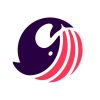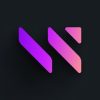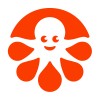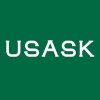Related Jobs
30 results
Employee | Full-Time | $72k - $130k

Employee | Full-Time | $110k - $125k

Employee | Full-Time | TBD

Employee | Full-Time | $76k - $125k

Employee | Full-Time | TBD

Employee | Full-Time | $93k - $143k

Employee | Full-Time | TBD

Employee | Full-Time | $130k - $145k

Employee | Full-Time | $95k - $125k

Employee | Full-Time | $180k - $357k / yr

Employee | Full-Time | $67k - $77k

Employee | Full-Time | $126k - $203k

Employee | Full-Time | $82k - $106k

Employee | Full-Time | $101k - $174k

Employee | Full-Time | $80k - $85k

Contract | Full-Time | TBD

Employee | Full-Time | TBD

Employee | Full-Time | $45k - $63k

Employee | Full-Time | $120k - $145k

Employee | Full-Time | $126k - $228k

Employee | Full-Time | $75k - $85k

Employee | Full-Time | $89k - $167k

Employee | Full-Time | $56k - $75k

Employee | Full-Time | $98k - $125k

Employee | Full-Time | TBD

Employee | Full-Time | $68k - $87k

Employee | Full-Time | TBD

Employee | Full-Time | $80K - $106K

Employee | Full-Time | $57k - $75k

Employee | Full-Time | TBD
Primary Purpose: To support the design, development, evaluation and revision of online and distance delivered classes and contribute to identification and implementation of instructional innovations related to flexible learning in line with university strategy.
Nature of Work: This position reports to the Design and Development Lead, Flexible Learning and Technology, Gwenna Moss Centre of Teaching and Learning, and works collaboratively with an instructional design team, subject matter experts and USask colleges and departments. This position focuses on the design and development of online and flexible learning classes and programs, revising and/or enhancing existing online and distance education classes and supporting the development of open educational resources including textbooks and ancillary resources. Working closely with subject matter experts (SMEs), this position will identify the needs of a given class or project and propose solutions that synthesize current learning theory, sound synchronous and asynchronous learning processes, and supported technologies. This position provides support to faculty/SMEs regarding the class design and development process, including conducting needs analysis, preparing class design plans, developing learning outcomes and objectives, developing learning modules and class syllabi, creating learning activities, selecting and creating media and preparing student evaluation tools.
Typical Duties or Accountabilities:
- Use a research-supported instructional design process when conducting needs analysis, preparing class design plans, developing learning outcomes and objectives, developing learning modules and class syllabi, creating learning activities, selecting and creating media and preparing student evaluation tools.
- Apply appropriate synchronous and asynchronous learning principles to class and program design and development.
- Advocate for and use design to make courses more inclusive, attending to access needs, and universality.
- Advocate for and use design to make courses align with commitments found in ohpahotân | oohpaahotaan Indigenous Strategy for the University of Saskatchewan.
- Practice efficient and effective project management to manage timelines, communication, and resources.
- Practice appropriate project documentation and file management procedures to minimize error.
- Support educators to design effective learning objects and activities that engage students in the learning process.
- Manage copyright permissions and processes for class and program development and maintenance to ensure the university is compliant with copyright laws.
- Act as a change agent for continuous quality improvement including g online course and program development processes, templates and other initiatives for the department and campus.
- Ensure liability and risk is reduced by remaining current with best practices and University policies related to the use of current technologies.
- Participate in ongoing professional development to keep up to date with advancements, innovations and best practices in Instructional Design and educational technologies.
- Engage with committees and working groups focused on online learning and technology enhanced education.
- Facilitate connection to professional development and training opportunities for SMEs and instructors around innovative curriculum design and development technologies and practices.
- Other duties as assigned.
Education: A graduate degree in Instructional Design is preferred. Equivalent education and experience will be considered.
Experience:
- Experience as an instructional designer working in an educational setting; experience in higher education would be an asset
- Experience with designing to anticipate and respond to diversity
Skills:
- Knowledge of adult learning theory and instructional design principles including performance-based outcomes assessments
- Familiarity with the principles and approaches of Universal Design for Learning (UDL) and their applications to course and assessment design, including web-accessibility standards (e.g., WCAG)
- Ability to understand and interpret educational needs and develop effective instructional media solutions, working projects from concept through completion
- Use common learning management, video conferencing, resource sharing, and media systems efficiently and effectively to help a course design match the needs analysis, context, diverse learners, and learning outcomes
- Ability to research, experiment with and evaluate new technologies and assess their value given purpose and content
- Demonstrated ability to prioritize and manage complex projects to deliver on time and within allocated resources
- Ability to build and maintain relationships with the campus community
- Ability to support faculty and instructors to leverage skills in face-to-face teaching for distance delivery formats and develop new skills, as needed
- Exceptional verbal and written communication skills
- Flexible and adaptable in responding to changing priorities, environments, and learning needs while maintaining focus on projects
- Innovative and forward thinking in developing new instructional strategies and solutions that leverage emerging technologies and trends in education to enhance learning experiences
About Organization
The University of Saskatchewan (USask) is leading the way in tackling pressing problems like water and food security. Research, teaching and learning at USask is enhanced by our array of world-class facilities, including the Canadian Light Source synchrotron, VIDO-InterVac, the Global Institute for Food Security, the Global Institute for Water Security and the Sylvia Fedoruk Centre for Nuclear Innovation.
A range of excellent programs, from business, law and public policy to engineering, medicine and veterinary medicine, positions us to cross traditional discipline boundaries and work together to bring a unique perspective to key global challenges. With more than 25,000 students from around the globe, including nearly 3,000 self-declared Indigenous students and more than 3,000 international students, our strong community and well-recognized experts will continue to drive USask to be the university the world needs.
Report Post

Instructional Designer
University of Saskatchewan

